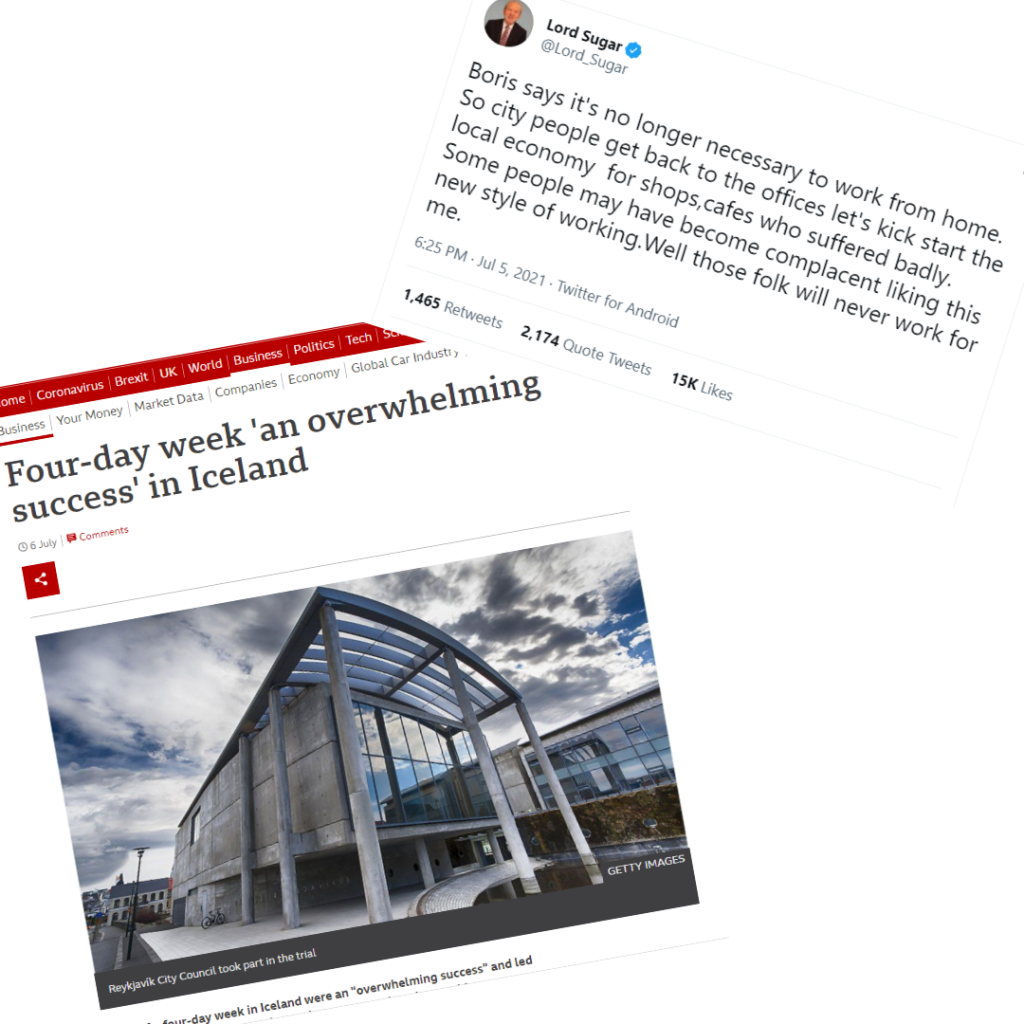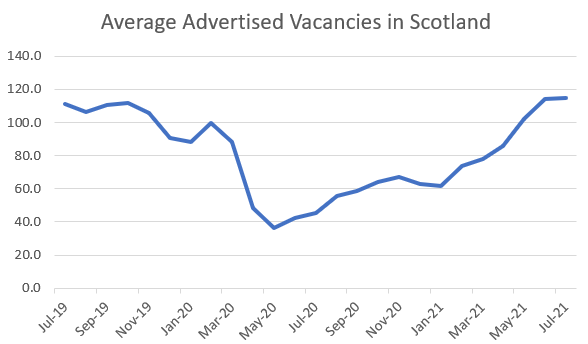Since the start of the pandemic, there have been numerous articles imploring employers to continue to facilitate home working when things ‘get back to normal’.
I, myself, am on the side of flexible working. I think it would benefit employers via an increased talent pool as you can, potentially, hire people from anywhere. Additionally your employees will not have to navigate a gruelling commute to and from work leading to higher productivity and a general better balance of work and home life.
However, to go against the grain of entrenched views that seem to prevail online these days, I thought that I should also consider the opposite view. So, this is more of a neutral article, including pros and cons.
The idea for this topic came at the start of July when, within a 24 hour period I had read about the “overwhelming success” of world’s largest ever trial of a four-day working week and also found Alan Sugar tweeting his support for people to return to their offices and that those who want to work from home “will never work for me”. Opposing ends of the flexible working spectrum for sure!

Firstly, although obvious, I concede that not all jobs can be carried out remotely. So, we can move forward on the assumption that the following arguments relate only to roles that can.
At the moment, according to the Office of National Statistics, vacancy numbers in Scotland across almost all industries are at their highest number for more than 2 years, higher than pre-pandemic levels. This is the case not only across the UK, but globally too. There are more vacancies than people to fill them. It’s been a long time since your employees could find another job as easily.
In fact, the USA saw it’s highest ‘Quit Rates’ for nearly 20 years in April & May of this year and a study from HR software company Personio of workers in the UK and Ireland showed 38% of those surveyed planned to quit in the next six months to a year.
Why are so many people changing jobs?
For many it’s a lifestyle choice. Spending a few months furloughed allowed many to explore ‘side hustles’ that have now blossomed into viable businesses.
Others have felt compelled to move on due to the way they were treated by their employer during the pandemic. Those companies that treated their employees well via support for homeworking, emotional support during the height of the pandemic or even good communication of the company’s situation, are more likely to retain their workforce.
However, many employees who were disillusioned with the behaviour of their employer pre-pandemic, have had their feelings reinforced by further poor practices such as poor remote management or general lack of support.
A recent study by Citrix of more than 2000 workers across the USA, found that 88% of workers say that when searching for a new position, they will look for one that offers complete flexibility in their hours and location.
So providing flexible options could not only help you recruit new staff, it could also ensure you manage to retain your existing talent.
So, what’s the down side of WFH?
Onboarding new starts is surely easier in a more traditional office environment? New employees develop their skills by hearing and watching successful colleagues carrying out their tasks. It also makes collaboration and innovation easier often through spontaneous conversations on the back of something that you have seen or heard.
And what about company culture? Employees are more likely to be engaged in your company culture when it is something that they can see, feel and be immersed in.
While many people working from home have reported an increase in their productivity, it can’t be denied that there can be a number of distractions at home when young kids are around or more than one of you are working from home. The reports of increased productivity should be looked at alongside the reports of people working longer hours at home. If you log on at 8am and still replying to emails at 10pm then there’s a good chance that extended hours that you are working will result in increased productivity – but at what cost to your mental health?
A recent survey by Deloitte of 1,248 UK workers found that 39% say it’s hard to stay motivated, while 34% find it difficult to maintain a work life balance and 33% feel isolated or lonely.
The same survey found that 42% of workers hoped to do their jobs from home twice a week or more. And maybe that is the solution. A combination of home and office working. The flexibility to avoid commuting 5 days per week while also spending time in the office developing relationships and collaborating with your colleagues.
C’mon, I pretty much said at the start that I would be sitting on the fence. What else did you expect? ;o)

